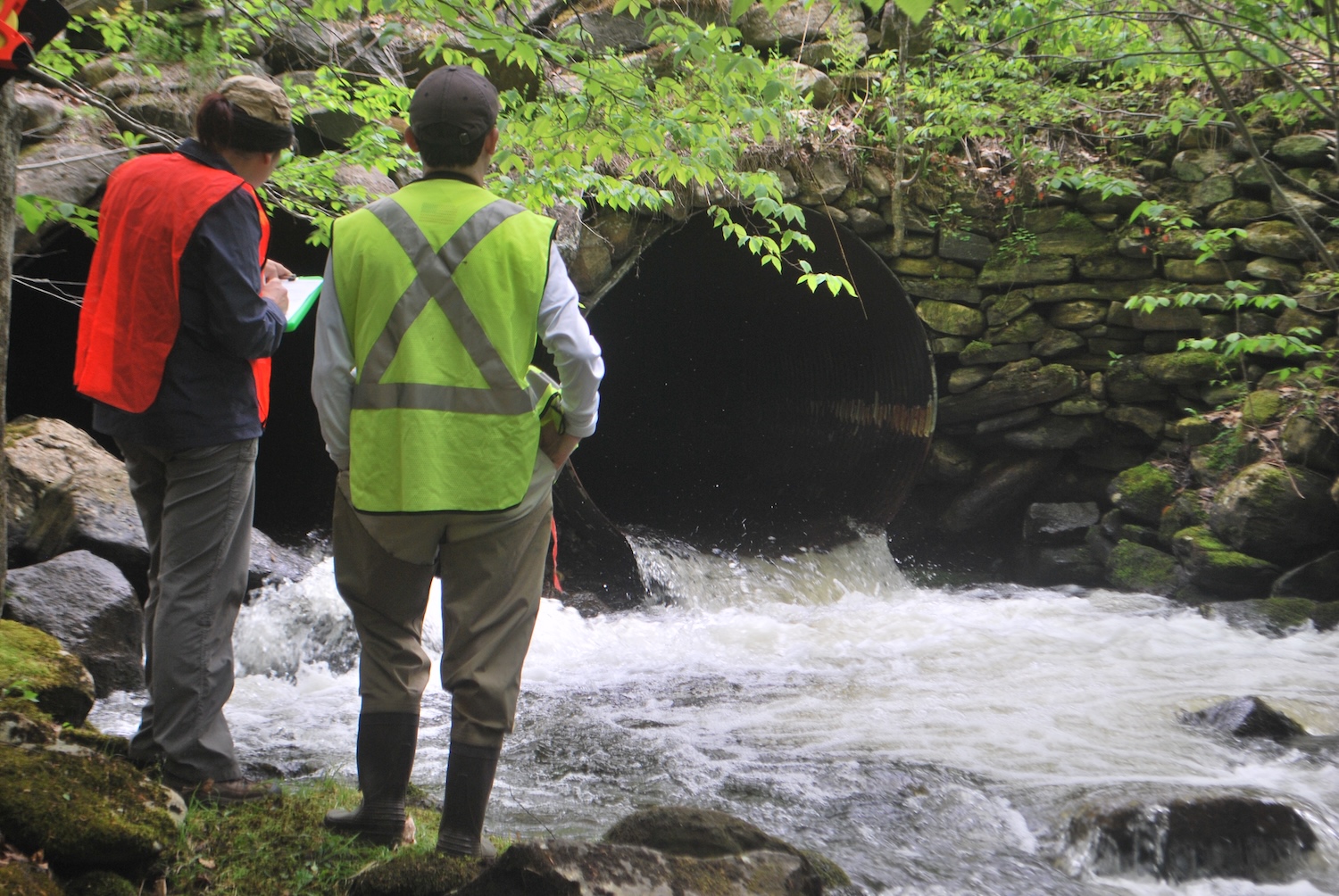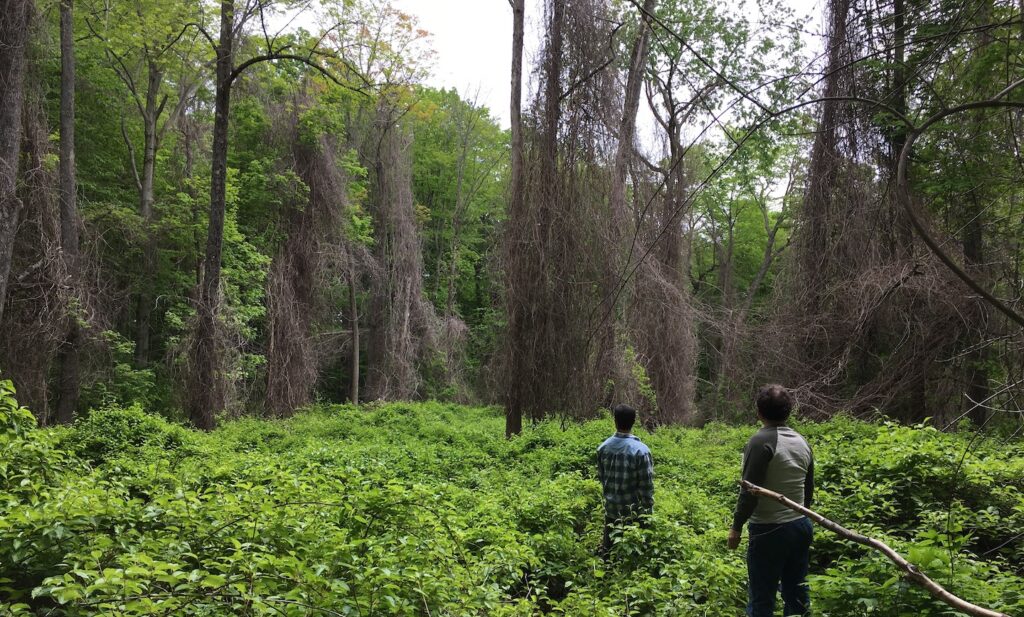
- This event has passed.
Info Session with Scott Jackson: Wildlife Connectivity and Getting Trained in the NAACC Protocol
March 19 @ 6:00 pm - 7:00 pm

Join UMass Extension Professor Scott Jackson for this BEAT-organized info session about the North Atlantic Aquatic Connectivity Collaborative (NAACC) and learn how you can contribute to wildlife conservation through hands-on volunteer fieldwork!
Free-flowing waterways provide better habitat for many wildlife species, especially cold-water fish species. And culverts—those concrete, metal, or plastic pipes or other conduits that carry streams and rivers under roadways—can be a detriment and obstacle to fish and other aquatic animals, often preventing them from freely moving upstream or downstream. A major problem with many culverts is that they were not designed with wildlife in mind or as a priority. The culverts are often too small, restricting nutrient flow and causing flooding; other times, they might be “perched,” meaning they’re elevated above the water’s surface, making fish migration difficult at best and sometimes impossible.
For this reason, BEAT has been working to survey stream crossings in Berkshire County using the NAACC protocol. During Spring 2024, we will offer training to anyone interested in conducting volunteer fieldwork by surveying culverts and road-stream crossings throughout the County. These surveys help determine what culverts and crossings need attention and prioritize the ones that need to be fixed sooner rather than later.
Interested in getting certified?
Join us online on Tuesday, March 19, at 6 PM to get more details from Scott Jackson, a UMass Extension professor and one of the leading developers of the NAACC and the regulatory standards created for culverts and surveying road-stream crossings. Scott will discuss why the NAACC was formed, the importance of doing this work, and what the training will entail. Click here to register.
DATE: Tuesday, March 19
TIME: 6:00 PM to 7:00 PM
LOCATION: Online via Zoom
COST: Free
You can also visit our Wildlife Connectivity Surveying: A Fieldwork Volunteer Opportunity page to learn a little more before the info session, but we highly encourage you to attend this talk if you are interested in getting trained and certified in the NAACC protocol.
The North Atlantic Aquatic Connectivity Collaborative (NAACC) is a participatory network of practitioners united in their efforts to enhance aquatic connectivity. The NAACC has achieved several milestones, including the development of standardized assessment protocols and a database for road-stream crossings, the initiation of training programs for data accuracy, the establishment of an online repository for crossing assessment data, the creation of web-based tools for prioritizing assessments and upgrades, and the ongoing expansion of assessment modules to include tidal streams, wildlife passability, and culvert condition.
This work is made possible by the Berkshire Cold, Clean, Connected (BCCC) partnership, a collaboration of organizations Housatonic Valley Association (HVA), The Nature Conservancy (TNC), Trout Unlimited (TU), Hoosic River Watershed Association (HooRWA), Farmington River Watershed Association (FRWA), Berkshire Environmental Action Team (BEAT), and Berkshire Regional Planning Commission (BRPC). This partnership develops ecological restoration projects in Berkshire rivers and streams that protect cold-water fisheries, remove barriers to aquatic connectivity, and enhance clean, healthy rivers throughout Berkshire County.


